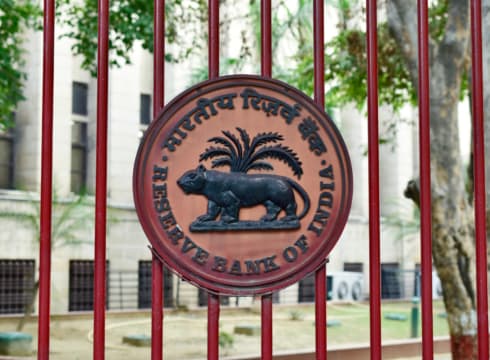RBI amended the Master Direction on PPIs to offer “convenience, speed, affordability, and safety of online payments to commuters for transit services”
The directives were issued under Payment and Settlement Systems Act, 2007 and will be effective immediately
Industry body Payments Council of India (PCI) welcomed the move saying that the step amendments will advance the homegrown digital payments infrastructure
Inc42 Daily Brief
Stay Ahead With Daily News & Analysis on India’s Tech & Startup Economy
The Reserve Bank of India (RBI) on Friday (February 23) allowed both banks and non-bank prepaid payment instruments (PPI) issuers to offer PPIs for public transport services.
The central bank amended the Master Direction on PPIs to offer “convenience, speed, affordability, and safety of digital modes of payment to commuters for transit services”.
“To provide convenience, speed, affordability, and safety of digital modes of payment to commuters for transit services, it has been decided to permit authorised bank and non-bank PPI issuers to issue PPIs for making payments across various public transport systems,” said the RBI in a circular.
The directives were issued under Payment and Settlement Systems Act, 2007 and will be effective immediately.
The move will have a direct bearing on the fintech sector as the amendments will enable allied startups to offer digital wallets and other services to commuters for transit services.
Meanwhile, the fintech ecosystem erupted in applause and welcomed the move. In a statement, industry body Payments Council of India (PCI) said that the step will advance the homegrown digital payments infrastructure and foster the growth of India’s financial landscape.
“The RBI’s decision to authorize both banks and non-banks to issue PPIs for public transport payments is a welcome move… By embracing digital payment solutions, we not only enhance convenience but also pave the way for a more efficient, accessible, and forward-looking transportation experience for all,” said cofounder and CEO of MobiKwik and the co-chair of PCI’s PPI committee Bipin Preet Singh.
Introduced in 2021, the Master Directions on PPIs regulate these instruments and enable the facilitation of PPIs for purchasing goods and services, accessing financial services, remittance facilities, among other things.
The amendments come as a respite for the homegrown fintech ecosystem which has been battered by RBI’s crackdown on the sector. In recent times, the apex bank has cracked the whip on Paytm Payments Bank and imposed restrictions on it over “material supervisory concerns”, much to the chagrin of other stakeholders.
Besides, the central bank’s recent diktat to card networks Visa, Mastercard to halt card-based commercial payments reportedly over lax KYC norms also had a direct bearing on Indian fintech startups.
Meanwhile, the move is expected to somewhat bolster the homegrown fintech ecosystem which boasts of 23 unicorns and has raised more than $28 Bn in funding between 2014 and 2023. At the heart of the Indian fintech space lies the estimated $2.1 Tn market opportunity by 2030.
{{#name}}{{name}}{{/name}}{{^name}}-{{/name}}
{{#description}}{{description}}...{{/description}}{{^description}}-{{/description}}
Note: We at Inc42 take our ethics very seriously. More information about it can be found here.


